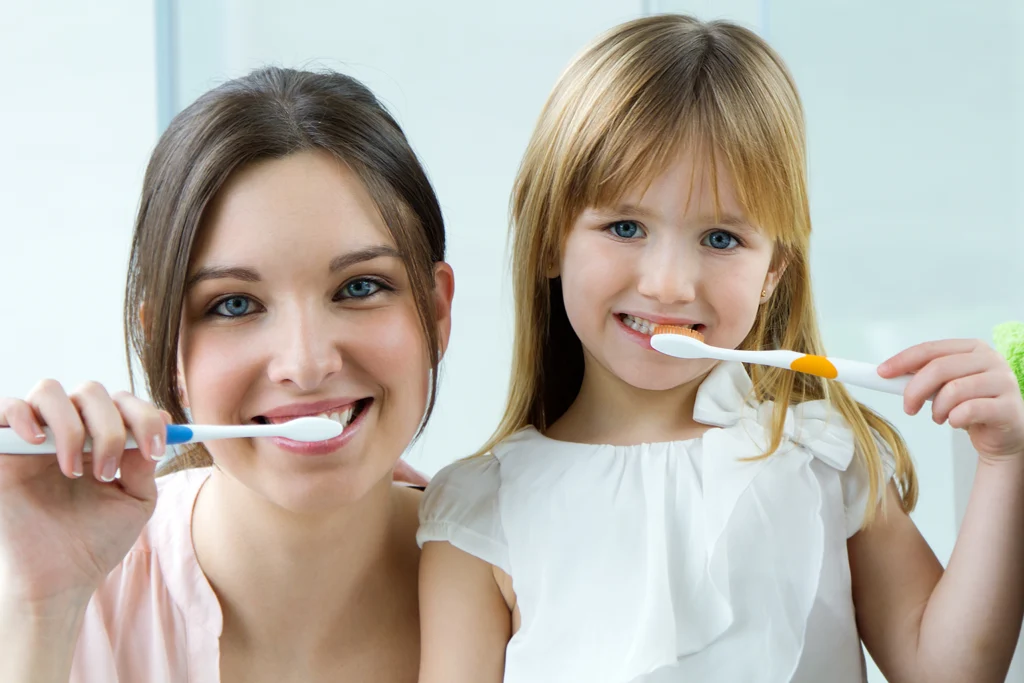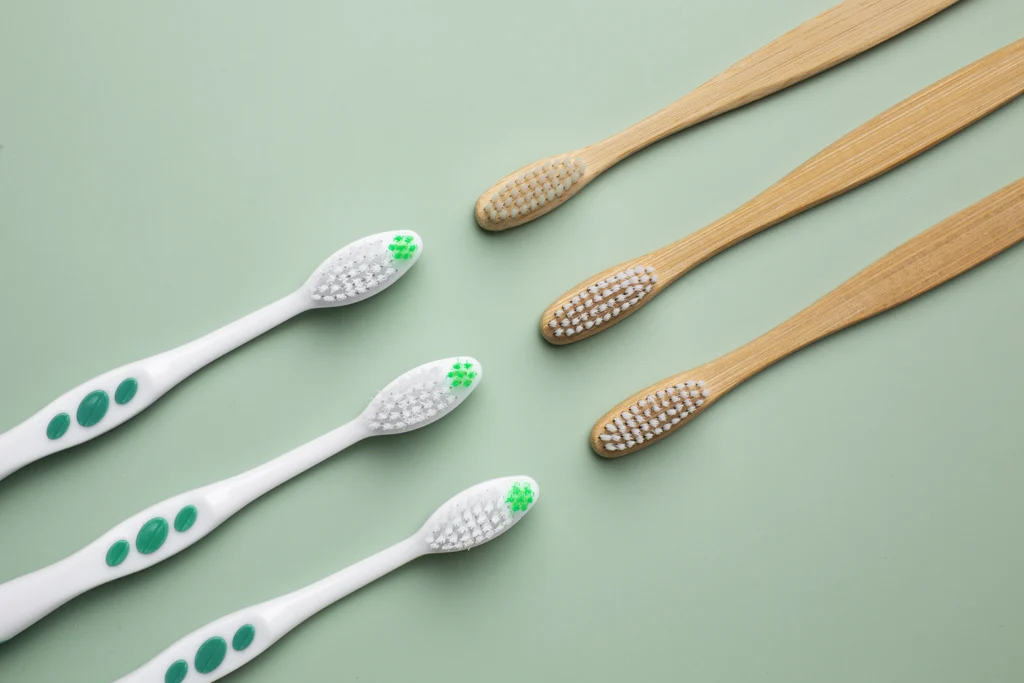Brushing your teeth is one of the simplest yet most effective ways to maintain good oral health. However, many people still wonder about the best way to brush, how often they should brush, and what happens if they neglect their oral care routine. At Big Sky Family Dental, we believe in educating our patients about the importance of brushing and maintaining proper oral hygiene. This article will cover the benefits of brushing, the correct technique, what style of toothbrush is best, and how to avoid brushing too hard to protect your gums and teeth.
Benefits of Brushing Your Teeth
Regular brushing offers numerous benefits that go beyond fresh breath. Here are some of the main reasons why brushing your teeth twice a day is crucial for maintaining a healthy mouth:
Prevents Tooth Decay
One of the primary reasons for brushing your teeth is to prevent tooth decay. Plaque is a sticky film of bacteria that constantly forms on your teeth. When you consume sugary or starchy foods, the bacteria in plaque produce acids that attack your tooth enamel. Over time, this can lead to cavities and decay if the plaque is not removed through brushing.
By brushing your teeth regularly, you help remove plaque and prevent it from hardening into tartar, which can only be removed by a dental professional.
Reduces Risk of Gum Disease
Brushing also helps prevent gum disease, also known as gingivitis or periodontal disease. Plaque buildup around the gum line can cause inflammation, leading to red, swollen, and bleeding gums. If left untreated, gum disease can progress to more severe stages, potentially causing tooth loss.
Brushing your teeth properly helps remove plaque from the gum line, keeping your gums healthy and reducing the risk of gingivitis.
Fights Bad Breath
Bad breath (halitosis) is often caused by bacteria in the mouth. These bacteria produce foul-smelling compounds as they break down food particles and sugars. Brushing your teeth helps eliminate the bacteria and food particles that cause bad breath, leaving your mouth feeling fresh and clean.
Promotes Overall Health
Did you know that your oral health is linked to your overall health? Research has shown poor oral hygiene is associated with conditions like heart disease, diabetes, and respiratory infections. Brushing your teeth twice a day can help reduce the risk of these health issues by preventing harmful bacteria from entering your bloodstream through your gums.
At Big Sky Family Dental, we emphasize the importance of maintaining good oral hygiene as part of a healthy lifestyle.

Proper Technique: How to Brush Correctly
While most people brush their teeth regularly, not everyone knows the correct technique for effective brushing. Brushing your teeth the wrong way can lead to missed areas, and even damage your gums and enamel over time. Here’s a step-by-step guide:
Choose the Right Toothbrush
Before diving into technique, it’s important to consider what style of toothbrush is best. A soft-bristled toothbrush is generally recommended by dentists because it is gentle on your gums and enamel while effectively cleaning your teeth. A toothbrush with hard bristles can cause irritation and wear down your enamel over time.
Electric toothbrushes can also be a great option, especially for individuals who have difficulty using a toothbrush manually or who tend to brush too hard. Electric toothbrushes provide consistent, gentle pressure and often come with timers to ensure you brush for the recommended two minutes.
Apply the Right Amount of Toothpaste
Apply a pea-sized amount of fluoride toothpaste to your toothbrush. Fluoride helps strengthen your enamel and protect against cavities. Remember, you don’t need a lot of toothpaste for effective cleaning—more is not necessarily better!
Brush at a 45-Degree Angle
Hold your toothbrush at a 45-degree angle to your gums, as this allows you to clean both your teeth and gum line effectively. Use gentle, circular motions to brush the outer, inner, and chewing surfaces of your teeth. Brushing too hard can cause damage, which we’ll discuss later.
Brush for Two Minutes
Dentists recommend brushing for at least two minutes, twice a day. Spend 30 seconds on each quadrant of your mouth to ensure that you’re giving equal attention to every tooth. Don’t forget to brush your tongue, as bacteria can accumulate there, leading to bad breath.
Don’t Forget the Gum Line
Be sure to focus on the gum line, where plaque often builds up. However, be careful not to apply too much pressure, it can irritate your gums and lead to recession.
Rinse and Clean Your Toothbrush
Rinse your toothbrush thoroughly under running water to remove any leftover toothpaste and debris. Store your toothbrush in an upright position and let it air dry. Avoid covering your toothbrush or storing it in a closed container, as this can promote the growth of bacteria.
How to Keep from Brushing Too Hard
Many people believe that brushing harder will result in a cleaner mouth, but this is a common misconception. Brushing too hard can actually do more harm than good, especially to your gums and enamel. Here are some tips on how to keep from brushing too hard:
Use a Soft-Bristled Toothbrush
As mentioned earlier, a soft-bristled toothbrush is gentle on your teeth and gums, reducing the risk of damage. Avoid using hard-bristled brushes, which can cause gum irritation and wear away enamel over time.
Hold Your Toothbrush Gently
Think of holding your toothbrush like a pencil rather than gripping it tightly like a tool. This encourages a gentler motion and prevents you from applying too much pressure.
Let the Brush Do the Work
If you’re using an electric toothbrush, let the brush do the work for you. Electric toothbrushes are designed to provide the right amount of pressure and motion, so all you need to do is guide it along your teeth. Many electric toothbrushes even come with pressure sensors that alert you if you’re brushing too hard.
Pay Attention to Your Gums
Your gums are sensitive and can be damaged by aggressive brushing. If you notice your gums are receding or bleeding frequently, it may be a sign you’re brushing too hard. Adjust your technique and use gentle, circular motions instead of scrubbing.
Negative Effects of Neglecting Brushing
Neglecting to brush your teeth regularly can lead to a range of oral health problems, some of which can become severe if left untreated. Here are some of the potential consequences of poor habits:
Tooth Decay and Cavities
Without regular brushing, plaque builds up on your teeth and begins to break down the enamel, leading to tooth decay. Cavities form when this decay progresses, causing small holes in your teeth. If left untreated, cavities can worsen, leading to infection and tooth loss.
Gum Disease
Gum disease is one of the most common results of poor brushing habits. When plaque accumulates around the gum line, it causes inflammation and irritation. Early-stage gum disease, known as gingivitis, can progress to periodontitis if not treated, leading to receding gums, bone loss, and potentially tooth loss.
Bad Breath
Failing to brush your teeth regularly allows food particles and bacteria to accumulate in your mouth, resulting in bad breath. This can be embarrassing and uncomfortable, but it can also be a sign of more serious dental issues.
Tartar Buildup
When plaque is not removed by brushing, it hardens into tartar, which can only be removed by a dental professional. Tartar buildup can lead to more severe dental problems, including gum disease and cavities.
Stained Teeth
Over time, poor brushing habits can cause your teeth to become discolored and stained. Plaque and food particles that are not removed can lead to yellowing and discoloration, affecting the appearance of your smile.
Conclusion
Brushing your teeth is a fundamental part of maintaining good oral hygiene and overall health. By brushing correctly, using the right toothbrush, and avoiding too much pressure, you can protect your teeth and gums from decay, gum disease, and other dental issues.
At Big Sky Family Dental, we encourage all of our patients to prioritize their oral hygiene by brushing at least twice a day and visiting us for regular check-ups. If you’re unsure about what style of toothbrush is best or need tips on improving your brushing technique, our experienced team is here to help.


